(This text may contain spoilers for Glamorous and Survival of the Thickest.)
My first error in judgment was having bought into the fetishization of entrepreneurship that took hold in the mid-teens on social media. Influenced by the #girlbossing of Instagram, Pinterest, and “female entrepreneurship” conferences, I’d pictured my team and me roller skating around our studio (never mind that I can’t roller skate?), dancing joyfully while we packed boxes, high-fiving over pizza, throwing confetti around. There would be balloons everywhere for some reason. Teamwork making the dream work! -
This is an excerpt from "The truth about going mega-viral, part two" on the newsletter
by Emily McDowell. It's a must-read where she tells the story of how the typical mindset of growing at all costs, being your own boss, and founding a successful and viral brand is not what one would expect it to be.Although this quote about how Emily expected her company's workplace to be can seem a bit naive, it's not. It’s not only all over social media; it's the re-imagining of a basic Hollywood workplace. The most famous rom-coms from the 1990s and early 2000s were filled with glamorous workplaces. These included How to Lose a Man in 10 Days, Sex and the City, 13 Going on 30, and The Devil Wears Prada.
These rom-coms revolved around love stories, with a glamorous job as the backdrop that was filled with fancy parties, night outs, and a stunning office. Most of the time, they didn't even seem like real jobs. Still, they created the perception that business and work were something all the characters excelled at and filled with amazing clothes, confetti, balloons, and colorful suits.
Then a pandemic happened. It made everyone reevaluate how they felt about work and led to "The Great Resignation". It opened up the discussion about overwork, work abuse, and the commodification of our lives. Consequently, I expected the ideal of high-fiving our colleagues in high heels while eating pizza to get somewhat shier in Hollywood.
But reading Emily's articles made something immediately click. It described exactly why I felt so uncomfortable after watching Glamorous and The Survival of the Thickest, two recent original series on Netflix. Watching them didn't feel right for some reason. The confetti-filled work environment they portray feels out of time.
Both shows feature minorities trying “to have it all.” They boast glamorous careers, amazing friends, romantic relationships, trendy outfits, and exciting parties in New York City. However, they were also burdened with an excessive workload and even subjected to work abuse, which was always ignored under the guise of dedication.
So let’s start with Glamorous.
Especially after reading this sweet TIMES article written by Miss Benny, I wanted to enjoy it. And in some parts, I did. It is light and playful and pokes fun at how companies use Pride Month to sell products. A clearly LGBTQ show with drags, a male main character always in make-up and stilettos who transitions during the show feels courageous, as I follow what is happening in the US (and other places).
What brought me to the show, though, was probably what brought everyone else. Madolyn Addison (played by Kim Cattrall) is an older, single, rich woman who owns her own successful company and dresses impeccably in New York. It looked like a show where Samantha Jones, also played by Kim Cattrall on Sexy and the City, would be the main character. (As some people defend on the internet, she would have made for a far more interesting main character.)
But Madolyn is definitely not Samantha. And we soon notice that she is not the main character here either; it is Marco. A 22-year-old who loves make-up and got his dream job working for a hIigh-end cosmetic brand owned by Madolyn called Glamorous. That's not necessarily a problem. A character like Marco is interesting enough.
Even with a strong main character, Glamorous has many issues. Much of the dialogue felt forced, as did most of the relationship drama. But its portrayal of work is what actually irritates me.
Glamorous pushes the idea, not so lightly, that your workplace can still be where you find purpose, connections, and even love. Dressing up for the office is great. You can show off your new shoes and your fabulous clothes! In Glamorous, the office is where you can be dazzling, dress well, and be respected for who you are. Where you can be creative and have original ideas. Where you can be heard.
Moreover, your boss can become your friend, and she always has your best interests at heart!
Is it just me, or are all those things laughable nowadays?
All of the characters in the show work until late; we even hear what Marco's salary is (20 per hour) for a multimillion-dollar company in New York. At some point, we also learn that his mom's house, where he lives, is three hours from the office. Still, it's his dream job! He gets to work for "A Living Legend" as her assistant! Yeah…right.
If you watch the show inattentively, you would think Madolyn is the perfect boss. But she constantly makes her employees work overnight. She employs her son, which is nepotism. She also seems to not trust her employees when she sneaks behind their backs to leak the campaign to save the company. (I love how in movies and TV shows there's always the need for a big idea to save the company.)
The majority of these issues are rarely discussed, if at all. No one fights back; just accept that "it is Madolyn, and she knows what she is doing. Now get back to work"!
Among the characters, Venetia, the first assistant, has the most problematic relationship with work. She was clearly inspired by Emily Blunt's character in The Devil Wears Prada, who starved to death and got sick because of her job. She lacks the competitiveness and fatphobia of The Devil Wears Prada's character but still completely obliterates herself in the name of the company. At some point, her work crush even says, 'Work is her love language.' What?
All characters have a great deal of interest in the company, its future, and its success. This feels completely contrary to how most workers feel about their jobs and positions nowadays. Behind its cute and glamorous storyline lie many anachronistic views on work and careers.
It honestly feels like all the New York office building owners got together to invest in this show. They just threw in some drag queens and LGBTQ characters to make it relatable and fun.
Survival of the Thickest is also filled with glitter at work
Mavis Beaumont (Michelle Buteau) is newly single and must rebuild her life as a struggling stylist. She relies on her two best friends to help her navigate this transition. Her breakup also caused her to quit her job because she didn't want to work with her ex. She needs to navigate her changed life as an unemployed single person.
Michelle Buteau is a talented comedian, and she carries the main character role well. Survival of the Thickets has many funny lines, such as “Did you know models and toddlers have the same diet?”, and some endearing moments as well.
It is a far better show than Glamorous in every aspect. The story is better, and the dialogue is more robust. The characters seem more natural, and the main character does fight back against abuse.
It joins a category of shows that explore how age does not guarantee a safety net from life’s shitstorms (Insecure, Grace and Frankie). Partners cheat. Long-term relationships end. Interpersonal mayhem and turmoil can upend all expectations of security and assurance. One's only strength is the ability to rally and begin again, like Mavis and so many characters before her.
She also does things her way, which is inspiring. But she doesn't face many difficulties, of course, because this is a fun and light show. She manages to find success and fulfillment by simply following what she wants to do, which is to make everyone look the prettiest they can.
Still, it has that Netflix veneer of blandness and this almost toxic idea of hustle culture hiding behind everything. Differently from Glamorous, it is not the workplace but the myth of entrepreneurship as the right solution to everyone's lives. You can't escape the discourse surrounding being your own boss on Youtube, Instagram, and even Substack. It is not only sold as a fantastic solution to all your problems but as the only solution.
Looking back to "The truth about becoming mega-viral", we see that having your own company is far from easy, laid-back, and fun. It's not high-fives and a prom party to celebrate your achievements at a drag club. Sometimes it's not even fulfilling.
Despite the comedy and glitter, Survival of the Thickest is about working hard and reaping the rewards. It is built upon the belief that anyone can get whatever they want as long as they put in the work. It doesn't question this entrepreneurial assumption at all. It's the exemplary fetishization of being your own boss, as Emily described. The good old American Dream, plus glitter, high heels, and drag queens.
I wrote something similar before, analyzing work culture in other productions:
Workism
‘She's early here,' Lou says, pointing at Vivian with his head while arriving at Manhattan Magazine's office in New York. ‘She has been here for the last 12 hours’, Maud answers. They were talking about Vivian Kent, their colleague at the magazine. She has headsets on and is frantically tapping her keyboard, completely focused on the screen.





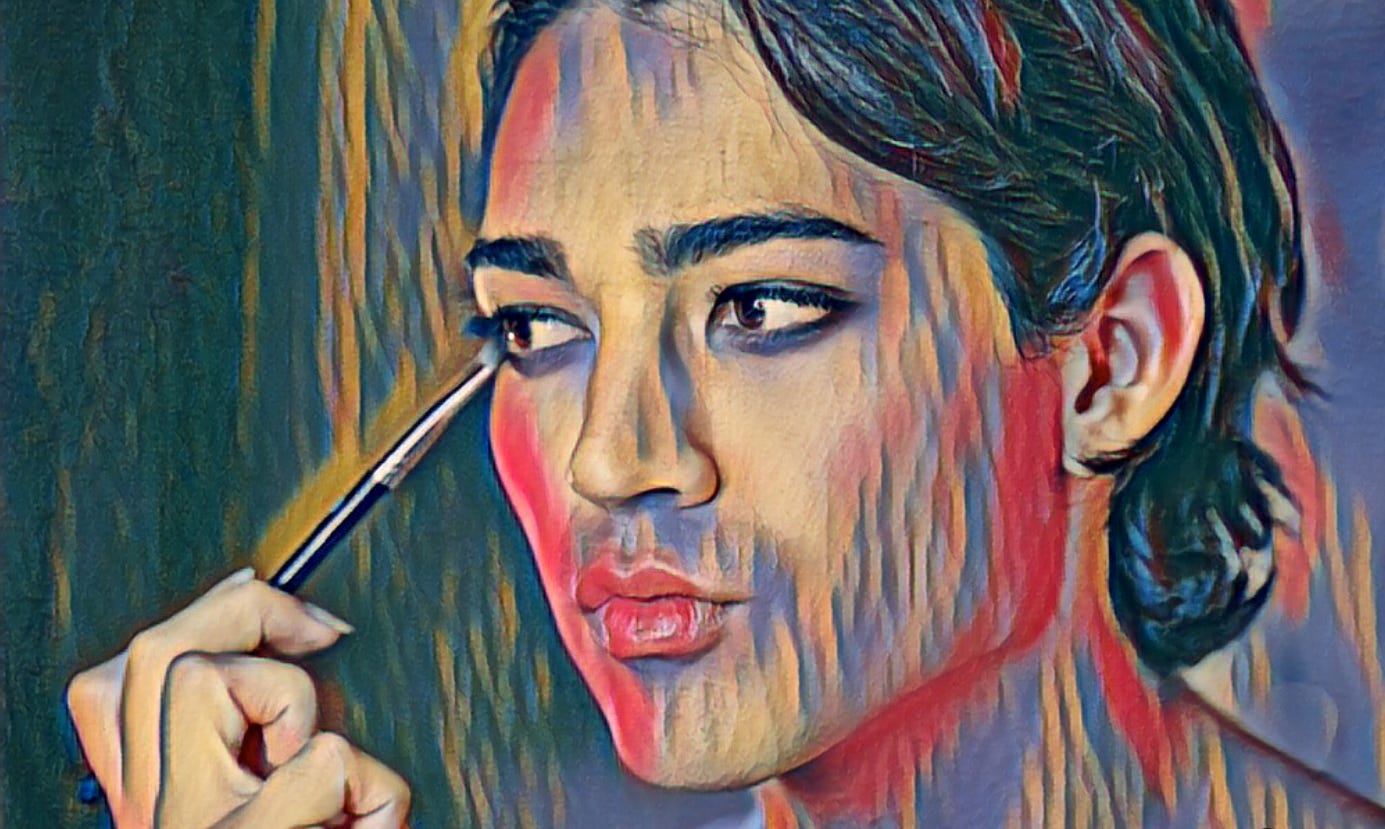

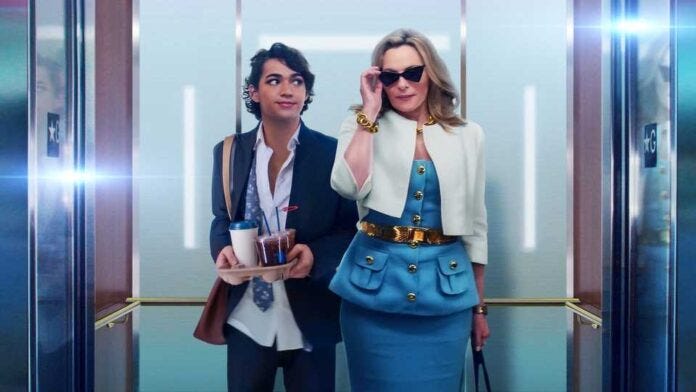

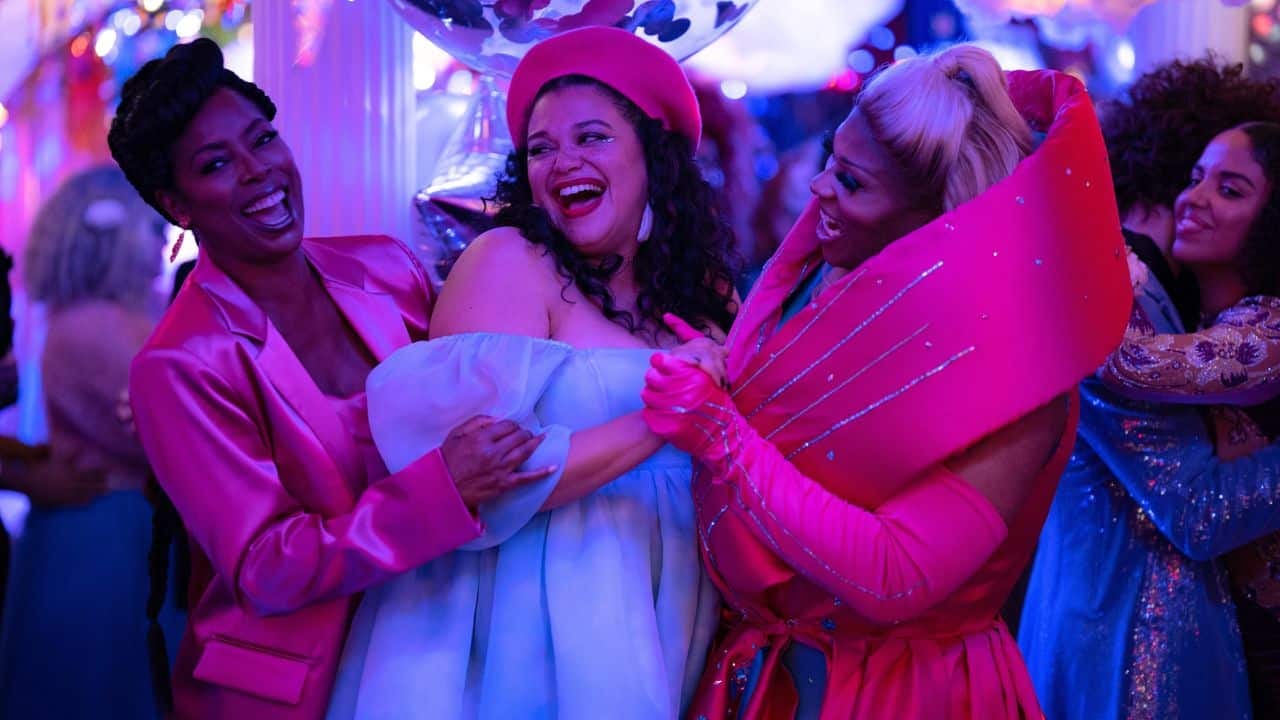
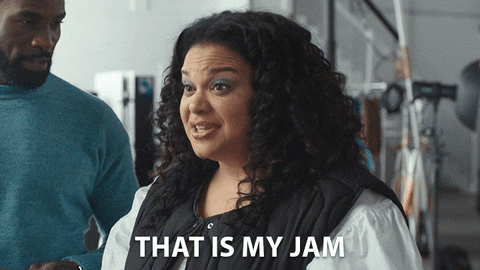
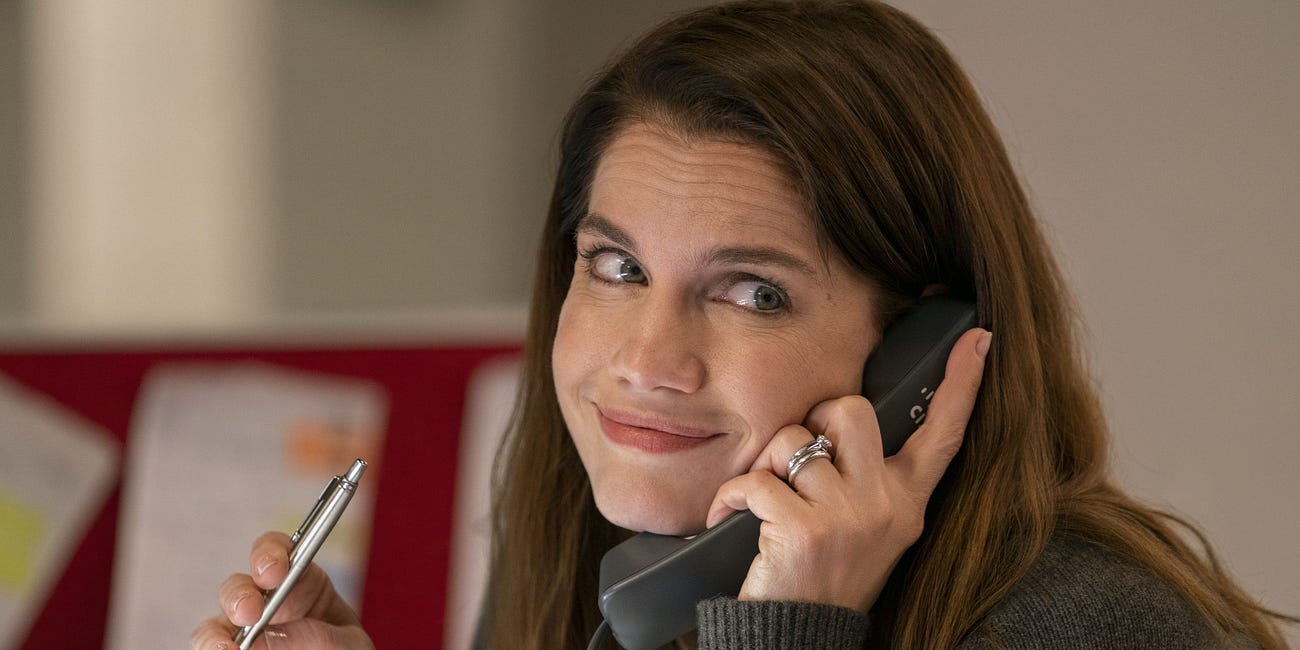
Luiza! Thank you so much for citing and sharing my post in this thoughtful piece. I totally agree with you-- the way work is portrayed on these shows (and in basically every Hollywood production for the last 20ish years) now feels dated, out of touch, tone-deaf. They're still pushing this narrative, but too many of us know too much now.
I love this post, Luiza, and your post on workism (including the shout-out to Derek Thompson's important writing). I intend to write about workism, as well (it's an underlying theme of my substack), but it'll take me some time to organize my thoughts and info about it. I'm not as optimistic as you are regarding people's raised consciousness about workism, so I want to approach it strategically.
I recently heard an interview with Chicago Tribune TV and film critic Nina Metz on the podcast It's Been a Minute. She points out how TV and film today are obsessed with rich people, but present few authentic stories about work (she cites Abbott Elementary and The Bear as exceptions).
As Labor Day approaches in the US, it's worth reflecting on this scarcity of entertainment realistically depicting work, when both writers and actors are on strike.
(I'm not gonna check here "Also share to Notes," which is a road to chaos, but assuming you don't mind, will repost on Notes and, possibly, LinkedIn).